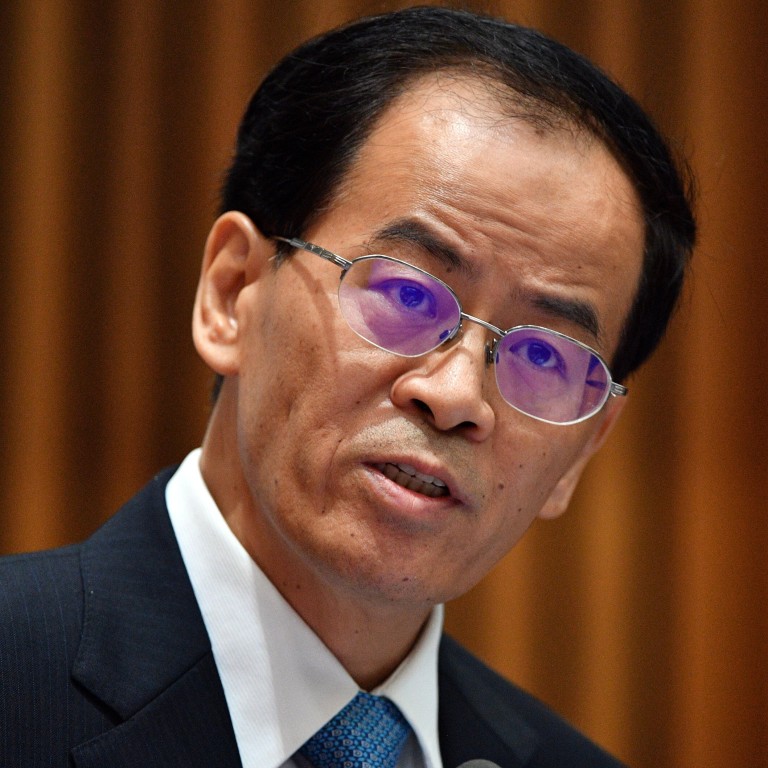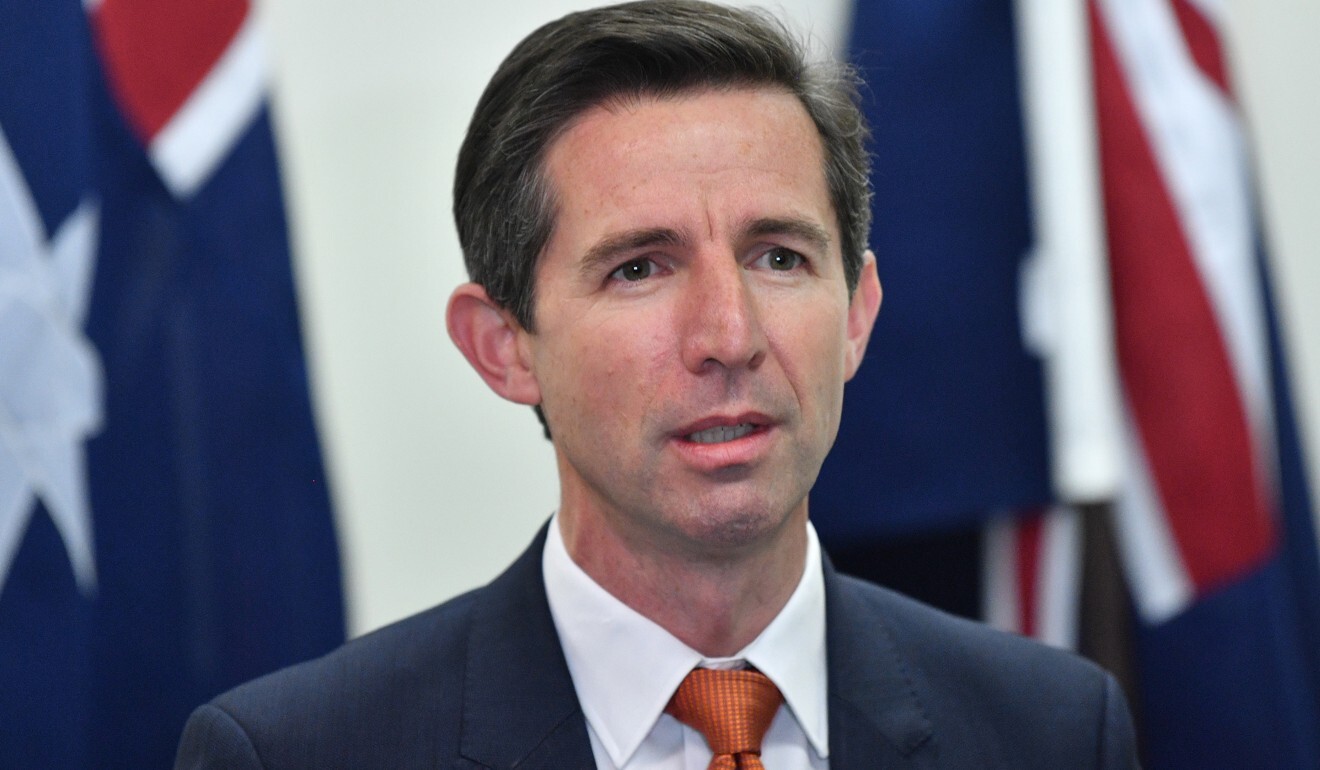
Coronavirus: Australia calls China’s envoy over ‘disappointing’ remarks
- Trade minister says ‘economic coercion or threats of coercion’ won’t change Canberra’s position on the need for an inquiry into the pandemic
- Ambassador Cheng Jingye has slammed the move as ‘politically motivated’ and suggested it could have consequences
Trade Minister Simon Birmingham on Tuesday said Frances Adamson, secretary of the Department of Foreign Affairs and Trade, had spoken to Chinese ambassador Cheng Jingye about his “disappointing” remarks, but he declined to give details of the discussion.
“Australia is no more going to change our policy position on a major public health issue because of economic coercion or threats of coercion than we would change our policy position in matters of national security,” he told ABC News.
“But our government is very clear that we’ve seen enormous loss of life around the world of hundreds of thousands of people, huge economic disruption to billions of lives across the planet, and of course that warrants transparent investigation to make sure it doesn’t happen again.”

The Chinese embassy in Canberra released a statement on Tuesday afternoon saying Adamson had told Cheng during the call that the inquiry did not target China and was not politically motivated. Cheng responded that the proposal was a “political manoeuvre”, and rejected concerns over comments he made to the Australian Financial Review on Sunday.
“[The ambassador] called on Australia to put aside ideological bias, stop political games and do more ... to promote bilateral relations,” the statement said.
The ambassador said the move could inflame anti-Australian sentiment among the Chinese public, which could hurt tourism from China and deter parents from sending their children to study in the country.
“It is up to the people to decide,” Cheng was quoted as saying. “Maybe the ordinary people will say ‘Why should we drink Australian wine? Eat Australian beef?’”
Adamson did not immediately respond to a request for comment on the Chinese embassy’s statement.
China’s foreign ministry spokesman Geng Shuang said at a regular briefing on Tuesday that Cheng’s remarks were directed at some “incorrect speech” from Australia that had “caused concerns among Chinese people, and concerns it could hurt bilateral relations”.
“Is there any problem with this?” he asked. “I don’t know where this so-called economic coercion came from ... we hope that other countries can act with China in a way that benefits international cooperation and strengthens mutual trust, rather than saying one thing and doing another.”
Birmingham also said he was “not aware of” Australian government investigations into reports that the Five Eyes intelligence agencies – namely Australia, the United States, Canada, New Zealand and Britain – were looking into Chinese scientists who worked in a Wuhan laboratory near a wet market that was linked to the first reported cases of the new virus strain late last year.
Besides Australia, countries such as the US have questioned Beijing’s handling of the initial outbreak of Covid-19 in Wuhan and called for an independent assessment of its origin. Beijing has stressed that the origin should be left to the scientific community and that proposals for an investigation amounted to “political manipulation”, although a Chinese foreign ministry spokesman suggested without evidence that the virus had originated from the United States.

